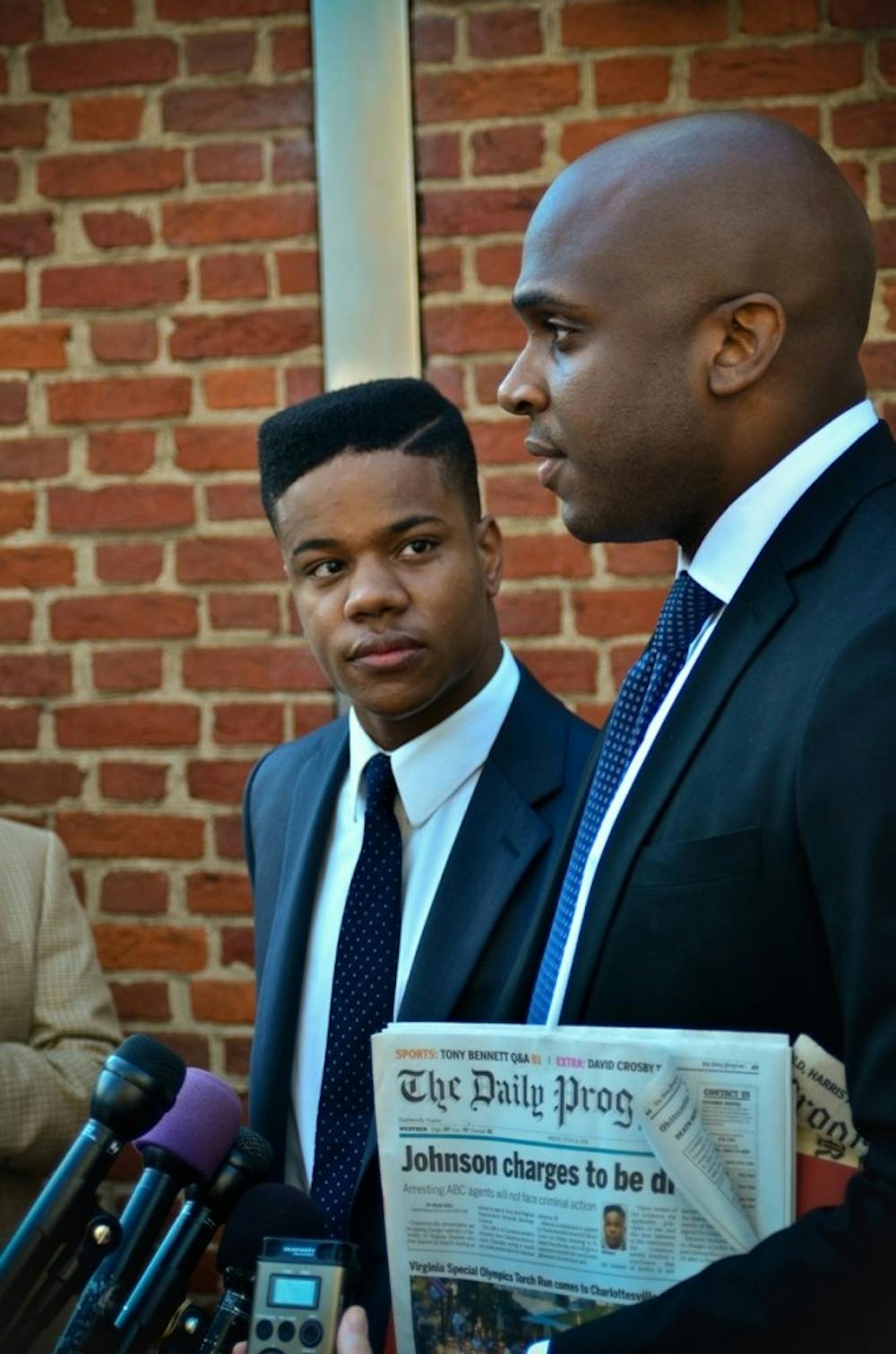Class of 2016 alumnus Martese Johnson filed a motion March 2 to compel the defendants in his ongoing lawsuit against two ABC officers and the agency’s former director of enforcement to produce more information related to the case, which resulted from Johnson’s bloody March 2015 arrest outside of Trinity Irish Pub. The motion to compel, which requests more information from opposing counsel, alleges the defendants did not fully answer all questions and provide all necessary documents.
Johnson originally filed the three million dollar lawsuit against the ABC, former ABC director of enforcement Shaun P. Walker and the three agents who violently arrested Johnson on the Corner for public intoxication and obstruction of justice on March 18, 2015. The original charges against Johnson were later dropped, and Johnson’s lawsuit was narrowed to one solely against Walker and two of the ABC officers involved in the arrest — Thomas Custer and Jared Miller.
Johnson’s suit includes allegations of assault and battery on the part of Custer and Miller and negligent supervision and training from Walker.
Johnson’s recent motion includes a list of documents and responses the defendants were compelled to produce.
“Plaintiff Martese Johnson … hereby moves this Court to compel Defendants ... to fully respond to Interrogatories and Requests for the Production of Documents, to produce all documents responsive to certain Requests and to overrule certain inapplicable objections,” the motion said.
The motion also requested all case documents be revised to note whether information was being withheld appropriately, and said Johnson’s counsel had already approached the defendants’ counsel about the issue.
“Plaintiff’s counsel has made a good faith effort to resolve this matter with Defendants’ counsel without success, and thus Mr. Johnson further seeks his attorneys’ fees ... for having to bring this motion,” the motion said.
Johnson’s countermotion was filed after the defendants originally filed a motion to compel in February, in which they alleged Johnson was not fully cooperating with the suit.
The defendants’ motion to compel requested Johnson fully answer questions and produce documents which they alleged he failed to do, and also claimed they had made a good faith attempt to resolve the matter independently.
In response, prior to filing his own motion to compel, Johnson filed a brief in opposition to the defendants’ motion Feb. 28.
“Despite the rather narrow issues involved in this case, Miller’s and Custer’s discovery requests sought information that went far beyond the asserted claims and defenses, and far beyond the proportional needs of the case,” the brief said. “Not surprisingly, Mr. Johnson lodged objections to those overreaching requests, asserting that the vast majority of those requests sought irrelevant information from Mr. Johnson, and thus imposed an undue burden on him.”
The information requests Johnson’s counsel claimed were irrelevant included his application for admission to the University, receipts for toiletries and personal items and text messages between Johnson and a relative or friend regarding that person’s illness.
“These requests may include … emails between Mr. Johnson and a manager at Trinity [Irish Pub] arranging a surprise party for a friend’s 21st birthday or homework discussions with a classmate who works for Trinity,” the brief said.
The court has yet to rule on either motion to compel, but the motions are scheduled to be discussed in federal court March 27.





